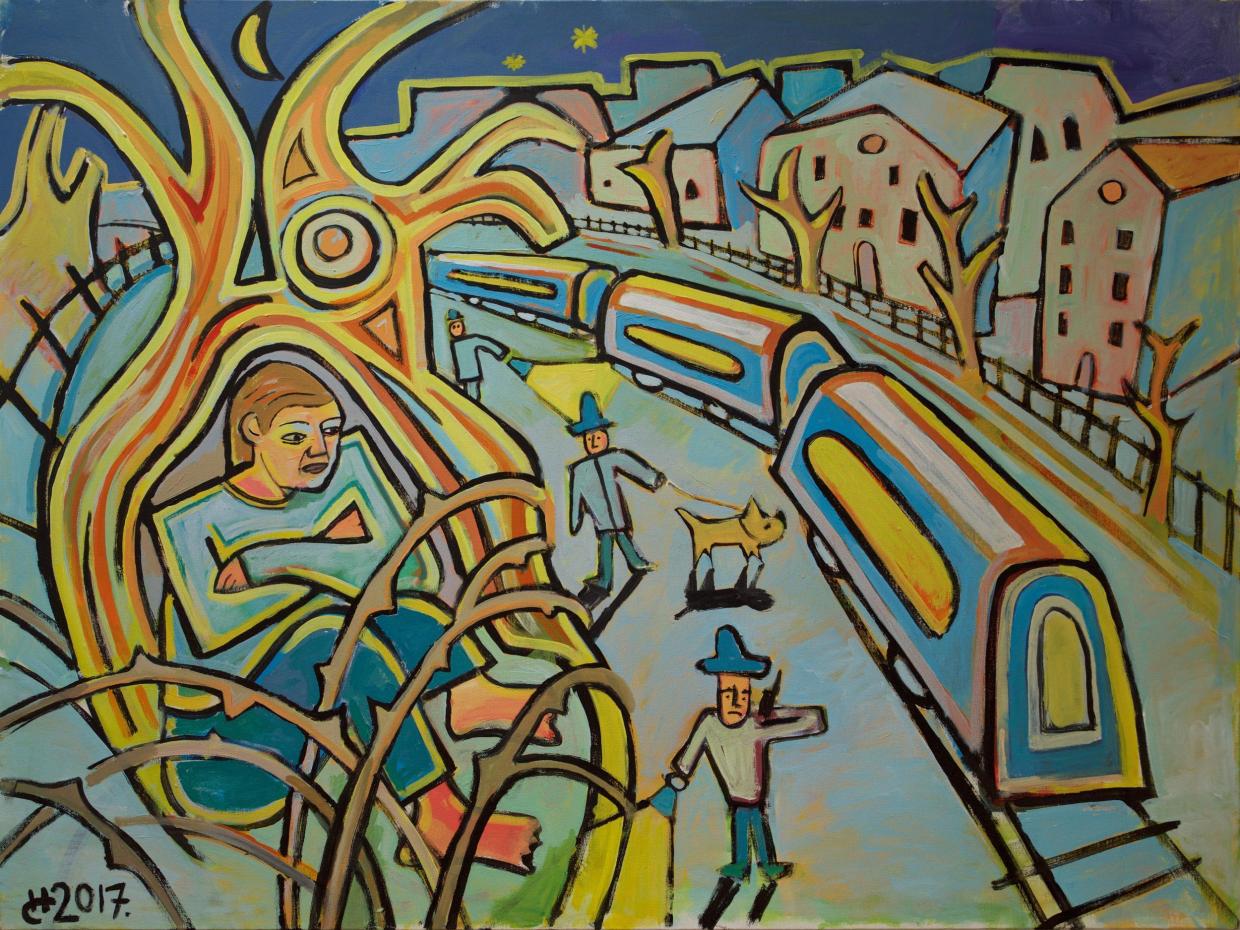by PATRICK COCKBURN & HENRY COCKBURN
 ‘In the distance I could see people looking for me under the night stars with flashlights. There was a dog barking. But I was not afraid because I felt in the care of the tree’ Henry Cockburn
‘In the distance I could see people looking for me under the night stars with flashlights. There was a dog barking. But I was not afraid because I felt in the care of the tree’ Henry Cockburn
In the first of a three-part series, Patrick Cockburn and his son Henry, reflect on the trauma of schizophrenia Henry has experienced for the past 16 years – and how painting helped
My son Henry was diagnosed with schizophrenia when he was a 20-year-old art student in Brighton in 2002. He had tried to swim across the estuary at Newhaven that February and was rescued from the freezing water by fishermen and taken to hospital, unconscious and suffering from hypothermia.
Henry was sectioned a year later and spent the next eight years confined in mental hospitals in the grip of a psychosis that ebbed and flowed but from which he could not escape. He disappeared into a mental world where no barrier existed between dreams, nightmares and reality and the voices of trees and bushes spoke to him, became his friends and told him what to do. He hated being confined in hospital but could scarcely have survived outside it as he wandered through east Kent, sometimes walking naked along railway tracks or swimming lakes and rivers in mid-winter.
He ran away from hospitals some 30 times, but his very inability to look after himself meant that he usually, though not invariably, was found within a few days. It seemed all too likely to my wife Jan and myself that he would not live long and we were in dread of a final call from the police saying that it was all over. In his more rational moments, Henry agreed with this, repeatedly saying: “I do not think I am going to live past 30.”
In the event, Henry’s strong underlying will to live, medical attention, family support and a fair measure of luck, meant that he did survive, unlike many of his friends in a similar situation. From 2007 the impact of his disorder began to recede, mainly because he came under the care of a consultant who saw to it that he was no longer spitting out his medication, which controlled though it did not cure his illness.
As he returned to a more rational view of the world, he spoke to me of a deep sense of failure and inadequacy, knowing that his friends from school were getting jobs, marrying and having children, while he sat wrapped in a blanket in the locked ward of a mental hospital. In a bid to bring success and a sense of achievement into Henry’s life, I suggested that he and I write a book about his horrible experiences as they affected him and his family. After all, he knew all too much from the inside about what it was like to suffer a psychosis and live for years in a mental hospital, things that most people regard with fear and know little about. The book – Henry’s Demons: Living with Schizophrenia, a Father and Son’s Story – comprises alternate chapters by Henry and myself and a long excerpt from my wife Jan’s diary. It was published in 2011 and became a bestseller.
Independent for more